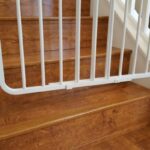Why Home Inspection Matters
Buying a house is one of the biggest decisions you’ll ever make, right? So, it makes sense to do everything you can to ensure your investment is solid. That’s where home inspection steps in. Whether you’re a first-time buyer or seasoned investor, a home inspection gives you peace of mind by revealing any hidden issues before you finalize the purchase. Without one, you might find yourself knee-deep in costly repairs or, worse, owning a home that’s not up to code. But don’t worry, we’re about to break down everything you need to know about home inspections.
What is a Home Inspection?
A home inspection is a thorough examination of a property’s structure, systems, and overall condition. It’s performed by a certified inspector, who goes through the home looking for potential issues that may not be visible to the untrained eye. These issues could range from minor repairs to significant structural concerns that could make or break a sale.
Why You Need a Home Inspection
You might be wondering, “Do I really need a home inspection?” The short answer: absolutely. Here’s why:
- Protect Your Investment: A house can look perfect on the outside but have hidden problems, like faulty wiring or plumbing issues. A home inspection ensures you know exactly what you’re getting.
- Negotiation Power: If the inspector finds issues, you can use the report to renegotiate the sale price or ask the seller to make necessary repairs.
- Peace of Mind: At the end of the day, a home inspection can save you from a lot of headaches. It’s better to know what you’re dealing with upfront than to be surprised later on.
The Home Inspection Process: Step-by-Step
So, what does a home inspection actually involve? Here’s a rundown of the entire process.
1. Hiring a Home Inspector
First things first, you need to hire a certified and experienced home inspector. Don’t just go for the cheapest option—you get what you pay for. Look for an inspector with good reviews, plenty of experience, and certifications from organizations like the American Society of Home Inspectors (ASHI).
2. The Inspection Day
The actual inspection usually takes 2-4 hours, depending on the size and condition of the home. The inspector will go through the following areas:
- Exterior: Roof, gutters, siding, windows, doors, and foundation.
- Interior: Plumbing, electrical systems, HVAC, insulation, and ventilation.
- Structural Components: The inspector checks the foundation, framing, and walls for any structural integrity issues.
3. Receiving the Inspection Report
After the inspection, the inspector provides a detailed report highlighting any issues found. This report can be long, but don’t panic if you see a lot of things listed. Not all of them will be deal-breakers.
4. Negotiating Repairs or Credits
Once you have the inspection report, you can negotiate with the seller. You might ask them to fix certain issues or provide a credit so you can handle the repairs yourself after closing.
What Does a Home Inspection Cover?
Wondering what exactly is covered in a home inspection? Let’s break it down.
1. Structure
Inspectors check the home’s foundation, walls, and roof to ensure everything is solid and stable. Cracks in the foundation or sagging in the roof are major red flags.
2. Plumbing
A good home inspector will test all faucets, showers, and toilets to make sure the plumbing system is functioning properly. They’ll also look for leaks, water damage, and any issues with the water heater.
3. Electrical Systems
This includes everything from the circuit breaker to individual outlets. Faulty wiring can be a fire hazard, so inspectors take a close look to make sure everything is safe and up to code.
4. HVAC System
The inspector will check the heating, ventilation, and air conditioning systems to ensure they’re in working order. If the HVAC system is old or inefficient, you might want to factor in the cost of replacing it.
5. Roof and Attic
A home inspector will examine the roof for signs of damage or wear and tear. The attic is also checked for proper insulation and ventilation, which can affect your energy bills.
6. Basement and Crawl Spaces
These areas can harbor moisture, mold, or pests, so the inspector will make sure everything is dry and properly sealed.
What Home Inspections Don’t Cover
While a home inspection is comprehensive, it’s not an all-encompassing review of every possible issue. Here’s what’s typically not included:
- Pests: A home inspector may note signs of pests, but a separate pest inspection is usually required.
- Hazardous Materials: Things like asbestos, lead paint, or radon usually require specialized testing.
- Cosmetic Issues: If it’s just peeling paint or worn carpets, the inspector might not flag it. They’re more focused on structural and safety concerns.
How to Prepare for a Home Inspection
Whether you’re a buyer or seller, there are a few things you can do to prepare for a home inspection:
- For Buyers: Make sure you attend the inspection. It’s your chance to ask questions and understand any potential issues firsthand.
- For Sellers: Tidy up the home and ensure all areas are accessible. The smoother the inspection process, the quicker you can move forward with the sale.
FAQs About Home Inspections
1. Can I Skip a Home Inspection if I’m Buying a New Home?
While it might be tempting to skip the inspection on a brand-new house, it’s still a good idea to get one. Even new homes can have issues like faulty wiring or poor construction practices.
2. How Much Does a Home Inspection Cost?
On average, a home inspection can cost anywhere from $300 to $500, depending on the size and location of the home. While this might seem like a hefty price upfront, it’s a small investment compared to the potential cost of undiscovered issues.
3. What Happens if the Inspection Finds Major Issues?
If significant problems are found, you have a few options. You can ask the seller to fix the issues, negotiate a lower price, or even walk away from the deal if the issues are deal-breakers.
4. How Long Does a Home Inspection Take?
Most inspections take between 2 to 4 hours, depending on the size and condition of the home. Larger homes or properties with more complex systems might take a bit longer.
Conclusion: Don’t Skip the Home Inspection
At the end of the day, a home inspection is a must for any buyer. It’s your chance to uncover any hidden problems and ensure you’re making a sound investment. Sure, it’s an additional cost, but the peace of mind you gain is priceless. So, whether you’re buying your first home or adding another property to your portfolio, don’t skip the inspection!
Authoritative Links:
- American Society of Home Inspectors – www.homeinspector.org
- National Association of Home Inspectors – www.nahi.org
- U.S. Department of Housing and Urban Development – www.hud.gov







